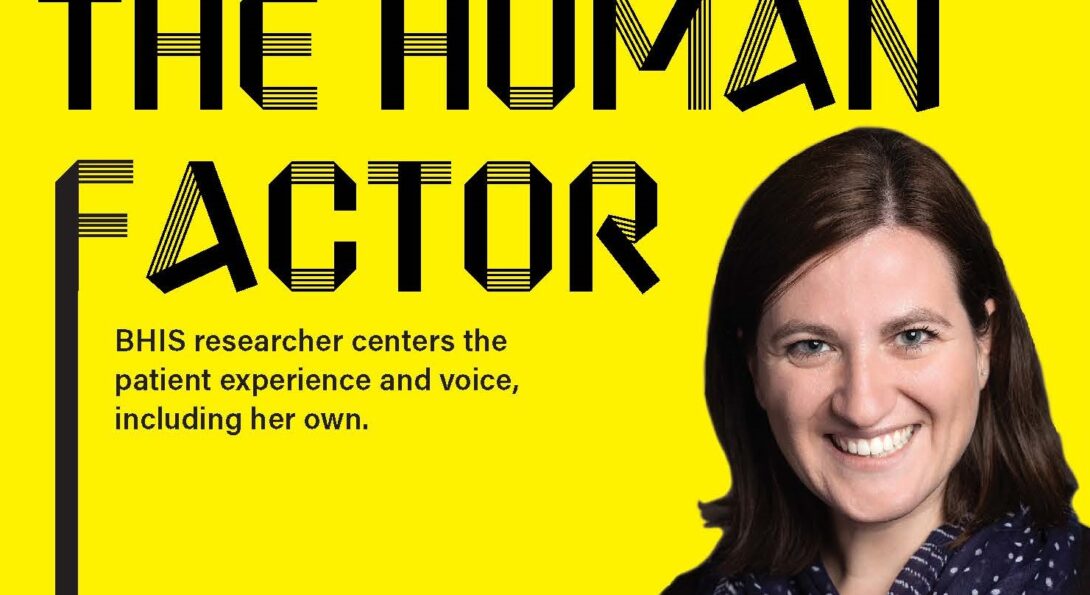The human factor

Introduction
Scientist. Cancer survivor.
Elizabeth Papautsky lives both these roles, with one informing the other.
“There are unique things that I’m able to see by wearing both of these hats,” said Papautsky, a human factors psychologist and research assistant professor of biomedical and health information sciences.
In spring 2020, when hospitals began canceling procedures due to increasing COVID-19 infections, Papautsky’s follow-up treatments for breast cancer were suddenly in limbo. How many other women were similarly affected?
“I’m trained to look at gaps and vulnerabilities in systems,” Papautsky said. “Some things, you can only see from the inside.”
She partnered with Tamara Hamlish, a research scientist at the University of Illinois Cancer Center, to conduct a study that found that among about 600 breast cancer survivors, nearly half had their care delayed at the outset of the pandemic. This included follow-up visits, breast reconstructive surgery, diagnostic imaging, lab tests and radiation therapy.
The study highlighted “a serious gap in disaster preparedness” in providing critical, time-sensitive care.
As Papautsky herself discovered, in the early days of the pandemic, guidance for physicians and patients was uncertain or altogether lacking.
Papautsky wants the health care system to be better prepared next time (and experts predict there will be a next time). She believes her field, human factors, can play an important role.
“In human factors, we’re concerned with how to represent information, data and knowledge in a way that’s tailored to user needs,” she explained.
“There’s a lot of focus on technology advancements being thrown at problems, without understanding the problem spaces or the people who are navigating these problem spaces.”
Her latest research, funded by a $250,000, one-year grant from the National Comprehensive Cancer Network and Pfizer Global Medical Grants, “is really about communication and education.”
She and her research team will develop a multimedia toolkit to share information with patients and providers about biosimilars, a new type of medication to treat HER2 positive breast cancer that is more cost effective and accessible.